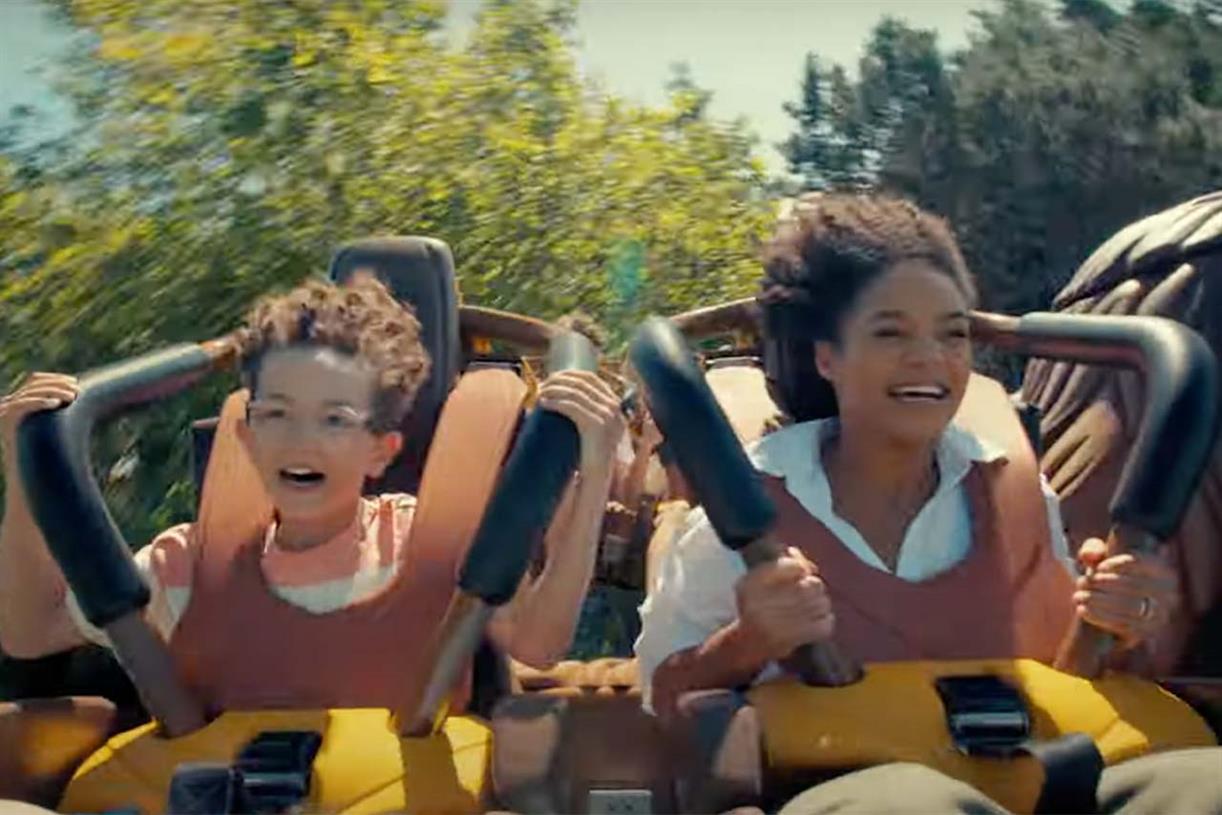Sarah Thompson launches mental health awareness initiative honoring her son with help from Droga5
The Shoulder Check event had over 2,000 attendees, 25 sponsors and several NHL stars participate.

Some 2,000 people converged on the Terry Conners Ice Rink in Stamford, Connecticut, earlier this month for a hockey-themed event called Shoulder Check, so named to remind people to look out for others who may be undergoing mental health issues.
But in another sense, it was a shoulder check for Sarah Thompson from her former agency, Droga5, where she was global CEO before moving to parent Accenture. The event was held on behalf of the HT40 Foundation, named after her late son Hayden Thorsen, who died by suicide at age 16 in 2022.
A sophomore hockey goalie at Darien High School in Connecticut and a player for the Junior Rangers in the Mid Fairfield Youth Hockey Association, Hayden Thorsen’s jersey bore the number 40. The event honoring his legacy included appearances by several NHL stars, such as the Anaheim Ducks’ Trevor Zegras and New York Rangers Chris Kreider and Adam Fox, and included an exhibition match.
Droga5, led by Executive Creative Directors Chris Colliton and Kevin Weir, created the concept, tagline, launch event, creative materials, design system and social content for the event honoring Thorsen, the son of Thompson and her husband Rob Thorsen, an ad exec who has held roles at BBDO, Mother and BBH, and is a former president at Big Spaceship.
Beyond the exhibition match, the event featured a signed NHL jersey raffle, merch sales and a moment in which current hockey stars and players Hayden’s age who were also his friends shared the ice together.
Sponsors of the showcase included families, friends and 25 corporate sponsors such as JPMorgan Chase, Droga5, the NHL, ESPNW, Madison Square Garden. Moving forward JPMorgan Chase and youth organizations like the YMCA will work with HT40 to bring the Shoulder Check mission to other communities.
“If you're 16, 17,18 years old, it's so aspirational to be fit, to be good at certain things, to get into good schools, to be successful and popular,” said Thompson. “Why not make it aspirational to be the person who's looking after other people? Make it a habit, that is kind of what this generation needs.”
In this lightly edited interview with Ad Age, Thompson spoke about the foundation’s mission, Droga5’s involvement, and the impact her son had on others.
How did you start working on the idea for this?
We knew we wanted to do something to honor who he was, what he represented. Hayden was a very magnetic teen who really looked after everyone. And we got hundreds of letters. People from the hockey world, from his Darien life—everything that said how many times he had pulled everyone together, broken the ice, thought about someone who might not have been thought about. We thought ‘What do we do to represent who he was, and do something that helps what really is an epidemic with the loneliness and mental health crisis that an entire generation of young adults feel?'
What part did Droga5 play in the initiative?
I talked to David Droga early on, that was probably January. And he was just like, ‘Well, we have to be a part of this.’ Our experience working with Droga5 was probably the biggest possible shoulder check a human being could get. We started talking to them about wanting to do something around who Hayden was. They were working on a book for me with all the letters that we had received. Some of their creative people and strategists were immersed in that. And they came up with the idea of Shoulder Check. Our intent is to make reaching out, checking in, and making contact an aspirational part of young adulthood.
They probably did more than I had ever anticipated, and they insisted on it, like, ‘Okay, we need to think about the merch, we need to think about the content strategy, how we get out in the world, the tone, how we set the cadence for getting to a launch, and then how do we think about what the next chapter is?’ So they really were like family.
At the event we had people from Droga5 doing manual labor, sitting in our house creating assets until 3 in the morning. They were a partner in helping to launch this brand and event but it was really the thinking, the look and feel.
There are amazing quotes about Hayden on the HT40 website. Were you surprised to see all those kind words to that level about Hayden?
I wasn’t surprised because I knew who Hayden was. I was proud and being able to do something that [to honor] how he went through life [that Shoulder Check] is the inspiration for, I feel very fortunate in having partners that helped bring it to life. We’ve had so many young adults and adults come up to us and say, ‘Hey, I had a crisis moment myself.’ The numbers are pretty staggering.
Some people at the event [thanked us for] ‘doing this and talking about it and making it aspirational and hearing some of these NHL players in the hockey world that we look up to talking about the importance of supporting each other [rather than] assuming what's going on with someone.’
I'm really proud that he helped inspire this.
Was there a certain part of the event that stood out to you personally?
The ceremony where Dave Maloney [Rangers commentator and former NHL player] called out the 2006 players who were Hayden's best friends—they're some of the best players in the nation who are 17 years old. When they came out and then NHL players came out and he asked the crowd to say, ‘Reach out, check in, make contact,’ and everyone said it together and put their hands on each other's shoulder. The NHL guys were there giving my husband a fist pump and supporting each other and the younger players and looking out to the audience. I think it was amazing to just say that line in that big group and for people to feel it, I think really hit me.
What’s next for the foundation?
It's really a launch for Shoulder Check. Some people launch with a Super Bowl spot. We launched with a hockey event in Stamford. But we really want to figure out how we really take this to different youth groups and how they can own it. We've had a massive outreach of groups and teams and individuals saying, ‘I really need to take this to my school to make shoulder checking a habit.’ We want to do some more work with the NHL, so that is in progress.
Is this what you just foresee doing full-time for the near future?
My husband Rob is going to do it full-time. I'm going to do it part-time and I probably will work in the fall in some capacity. So I’m just figuring out what that is.
Your family has shown phenomenal strength to send a message that resonates.
At first, when we got a lot of local press, we looked at it like ‘Do we want to talk about Hayden so much?’ Even using the word suicide was difficult for me to see in writing. It still is. And I remember saying to Rob, I’m like ‘Well, we did this. We’re out there.’
It's like being half pregnant. We’re either all in and comfortable talking about sorrow and loss and hope, or why bother?
My nephew just took [the Shoulder Check initiative] to his college. He had a big part in this and he’s a big football player. He said he had some younger freshman come up to him afterward and say, ‘I’m so glad you're talking about your cousin because I’ve had some struggles.’ He brought him right over to the coach [and is now mentoring the freshman]. I don’t know if he would’ve done that before. So it gives me a bit of feeling like, ‘This is good. There’s some good here.’

 ValVades
ValVades 




























.jpg&h=630&w=1200&q=100&v=a905e78df5&c=1)


